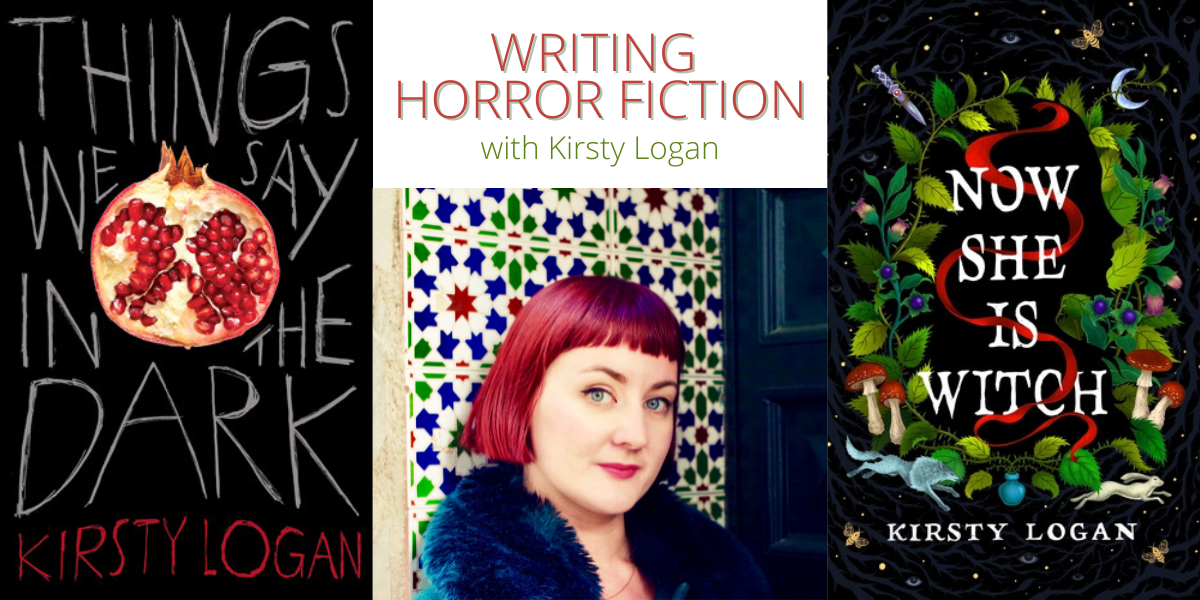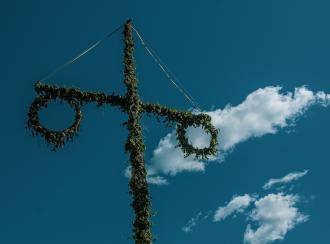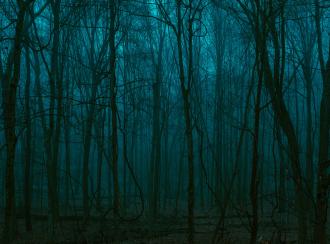
Back by popular demand, author Kirsty Logan is returning to W&A in 2025 to deliver this five-week online course dedicated to the craft of writing horror fiction.
From monsters to ghosts, murderous clowns to the gothic, horror stories have been keeping readers up at night for as long as we can remember. Writing Horror Fiction is designed to take you through everything you need to know to send chills down a reader's spine.
Attendees will explore how to develop the seed of an unsettling idea, discover through plotting and writing techniques how much to leave to the reader's imagination, and analyse what makes a good horror story for the 21st century. You'll delve into psychology and common fears, develop a character and learn how to put them in a compelling conflict, and experiment with different prose styles.
Through a combination of discussion, analysis and plenty of fun-but-challenging writing exercises, you'll leave each class with more ideas to pursue. Come ready to think, discuss, create and write!
This course includes:
- Five online sessions, 1.5 hours in length, for a maximum of 20 students
- Practical workshops with takeaway exercises to be applied to your own work and put each session's learning into practice
- In-depth analysis of the horror genre, using books, films and TV shows as reference
- Course materials available to view ahead of each session, including stories and excerpts to read, plus catch-up recordings
- A private online forum, to share discussion and writing throughout the course and stay in regular contact with your tutor
- A copy of the Writers' & Artists' Yearbook 2025
- A horror fiction book bundle from Bloomsbury Publishing
As an optional extra at a cost of £50, you can get bespoke feedback from Kirsty on up to 2,000 words of original writing (one-page synopsis can be included in addition to the 2,000 words)
Schedule: Tuesday 29th April – Tuesday 27th May
Week 1 – Tuesday 29th April
What scares us – and why?
We start by digging deep and getting real, asking ourselves: what are the real roots of common fears? What creeps us out and makes us feel unsettled? And how can we use that knowledge to construct vivid, compelling, emotionally real stories that will connect with readers? We’ll explore examples of classic and modern horror, then play with a combination of universal human fears and your own unique viewpoint. We'll end by crafting two-sentence horror stories, so you'll end this evening with some brand new finished work.
Week 2 – Tuesday 6th May
Throwing Rocks at Your Characters
How do we start a story? We create a character, and then we put them in an impossible situation – one that will compel your reader to keep turning the pages because they must find out what the character does next. Through story examples and lively discussion, we'll explore the importance of a 'threshold moment', and how you can use them to produce your own unique, original and addictive horror story. We'll end by creating a brand new character and putting them in a sticky situation.
Week 3 – Tuesday 13th May
Make It Feel Real with the Right Detail
One common writing mistake is to try to describe everything. Every shriek of terror, every bit of gore, every gleam of light on a creature’s fangs. But does the kitchen-sink approach lead to the scariest stories? This week we'll learn how to select the strongest and scariest details. We'll read and discuss several examples of classic and modern horror, analysing how and why they use the elements they do – and why they leave out others. As always, we’ll do timed writing exercises so that you can create your own original horror story.
Week 4 – Tuesday 20th May
Selecting the Perfect Words
We know what we want to say – but how do we say it? Getting started can feel like the easiest and hardest part of writing, so we'll start with opening lines. What makes an effective start to a story? What pitfalls should be avoided? Then we’ll experiment with different writing styles to see what effect this brings to our stories, and consider the importance of white space on the page. How can you make silence and space work for you, and use the power of what's unsaid? Together, we'll figure out the perfect words to tell your story.
Week 5 – Tuesday 27th May
Hello, World!
We've worked with the door closed – but now it's time to let your story greet its readers. How do we present and discuss our stories in a compelling way? How do we make it clear what's going on in a story without confusing or boring the listener? By discussing a selection of horror book descriptions, we'll clarify how to discuss your work that makes a reader, agent or editor desperate to hear more. You’ll end the course inspired, prepared and raring to put the finishing touches on your brand new stories.
Testimonials
“Absolutely loved the Horror course with Kirsty Logan. It was well organised, informative, and the live sessions were both fun and informative. It's really opened my eyes to just how varied Horror can actually be, and helped me think about my writing in a whole new light. I found it easy to access and have been recommending this course to people for the next time it's available. Loved it! Thank you.” - Emma Finlayson-Palmer
“Encouraged to explore our childhood fears, we were then encouraged to use them in our stories. The examples seen in class allowed us to 'read like writers' and get to the bottom of what techniques were used. Kirsty is very knowledgeable and friendly, so she put us at ease throughout the course. I came away with an idea for a collection of flash stories.” Laura Jacquemond
“An engaging and well-presented primer on horror fiction. I finished the course inspired and excited to tackle my next writing project!” 2024 Course Attendee

Kirsty Logan’s latest books are the novel Now She is Witch and The Unfamiliar: A Queer Motherhood Memoir. Her next book will be a short story collection, No & Other Love Stories, due out on Valentine’s Day 2025. She is the author of three novels, three story collections, two chapbooks, a 10-hour audio play for Audible, several collaborative projects with musicians and visual artists, and around 300 short stories. Her books have won the Lambda, Polari, Saboteur, Scott and Gavin Wallace awards. Her work has been optioned for TV, developed for film, adapted for stage, recorded for radio and podcasts, exhibited in galleries and distributed from a vintage Wurlitzer cigarette machine. She is currently collaborating on several projects across film, TV, collaborative chapbooks, and performance.
The course fee of £350 (inc. VAT) is payable in full online. Please note that payment instalment plans are available for all W&A events, writing courses and editing services. Contact W&A Admin on [email protected] so that we can find a payment schedule that works for you.
If this event is Sold Out, please look out for other writing courses by visiting our Events homepage.
This is a live online course which will be presented using video conferencing software. Joining instructions and full guidance will be provided by the W&A Team a week before the event start-date.
To view our event refund and cancellation policy, please click here.
Accessible to All
It’s of real importance to Writers & Artists that our events and courses remain accessible to all.
- Writers & Artists has made one bursary place available for this writing course as part of our accessibility scheme. Please visit our bursaries page for further information about how to apply.
- At the author’s discretion, event materials will be made available to attendees after the course.
- A link to a recording of the course will be circulated each week. This will be made available to course attendees only, and for a time-limited period.
- This course will include written text and visuals. Please contact us in advance so that we can make arrangements to be sure all documents appear in a format that works for you.
- If you’d like to attend but have any questions or concerns regarding accessibility, then please email [email protected]


